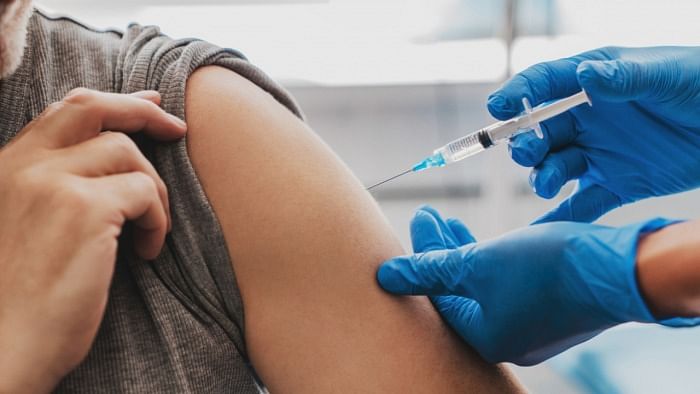
The Centre’s placing of an order for five crore doses of the pediatric vaccine Corbevax has rekindled debate on vaccinating young children, even as experts pointed to the radical nature of Omicron that challenges the extent of protection inoculations can offer.
Corbevax is a protein sub-unit vaccine developed in the United States and licensed to the Indian firm, Biological E Ltd (BioE) for production. BioE has completed cohort trials of children aged 5-12, raising the prospect that vaccination of children under 15 will start soon.
The National Technical Advisory Group on Immunisation (NTAGI) for Covid-19 reviewed the clinical data trial on January 4 and pending the committee’s approval of the data, a final nod from the Drugs Controller General of India (DCGI) may be given soon.
At the same time, NTAGI member and epidemiologist Dr Jayaprakash Muliyil said vaccinations of this target group of children may not be helpful because the existing vaccinations were designed to counter the original Wuhan virus, which potentially reduced their efficiency against Omicron.
“Omicron differs from all previous iterations of the novel coronavirus, in the sense that all previous strains have respected previous antibodies and vaccinations. This resulted in Delta sparing Mumbai’s Dharavi slum in the second wave and after. However, Omicron has not respected previous infections and is bypassing immunity generated by vaccination,” Dr Muliyil said.
Virologist Dr T Jacob John of CMC Vellore confirmed that Omicron represents an evolutionary new version of the SARS-CoV-2 virus. However, he added that even if pediatric vaccinations have reduced efficiency against Omicron, it is criminal to withhold it from use, especially since children with comorbidities are at a high risk of death.
“The use of vaccinations on children should be examined as a matter of risk-benefit analysis. While the death rate in children is very low, it is not zero. If a vaccination is available that can save a child’s life, it must be used,” Dr John said.
He added that if there is no risk associated with administering a vaccine, then there is no reason not to use it. While mRNA or Adenovirus (such as Covishield) vaccines are not risk-free, Dr John said Corbevax, as a sub-unit vaccine, works by infecting the spike protein into the body. “Sub-unit vaccinations are theoretically safe,” he said.
This opinion is reflected within the overall parent community, said Shweta Sharan, founder of Facebook group ‘Bangalore Schools’, which has 58,000 parents and educators.
“Many parents have said that they will only send their children to schools if they are vaccinated. Online schooling has not helped children in the last two years in terms of learning or socialisation," she said.
State child deaths
In Karnataka, there have been 21 pediatric fatalities to Covid-19 in the third wave. Six of the fatalities were toddlers aged one or less. Another seven were aged between 5 to 14. Health Commissioner D Randeep said most of the child deaths had been prompted either by comorbidities or because the children were too young to have developed immunity.
Out of 13 fatalities reported between January 13 to 30, 11 child deaths were due to severe comorbidities such as myocarditis (heart disease), septic shock, and meningitis, among others.
Check out the latest videos from DH: